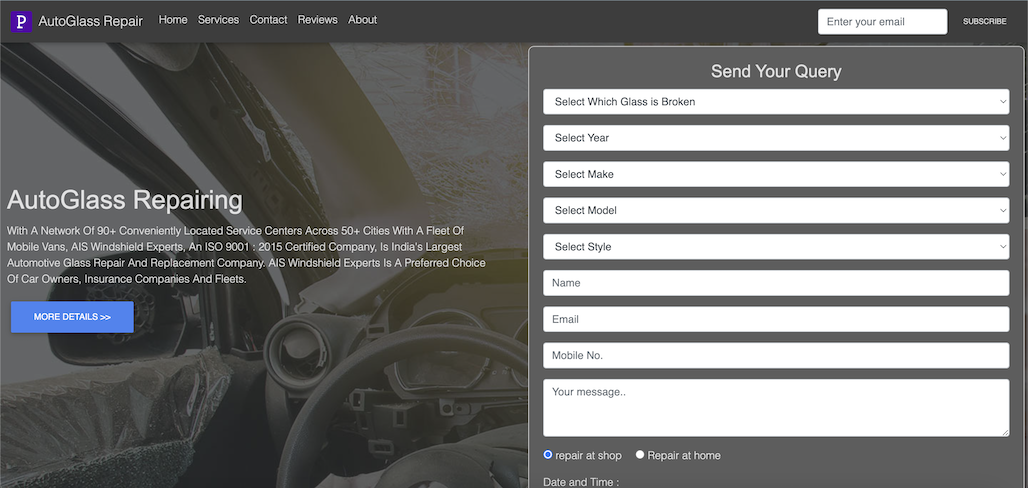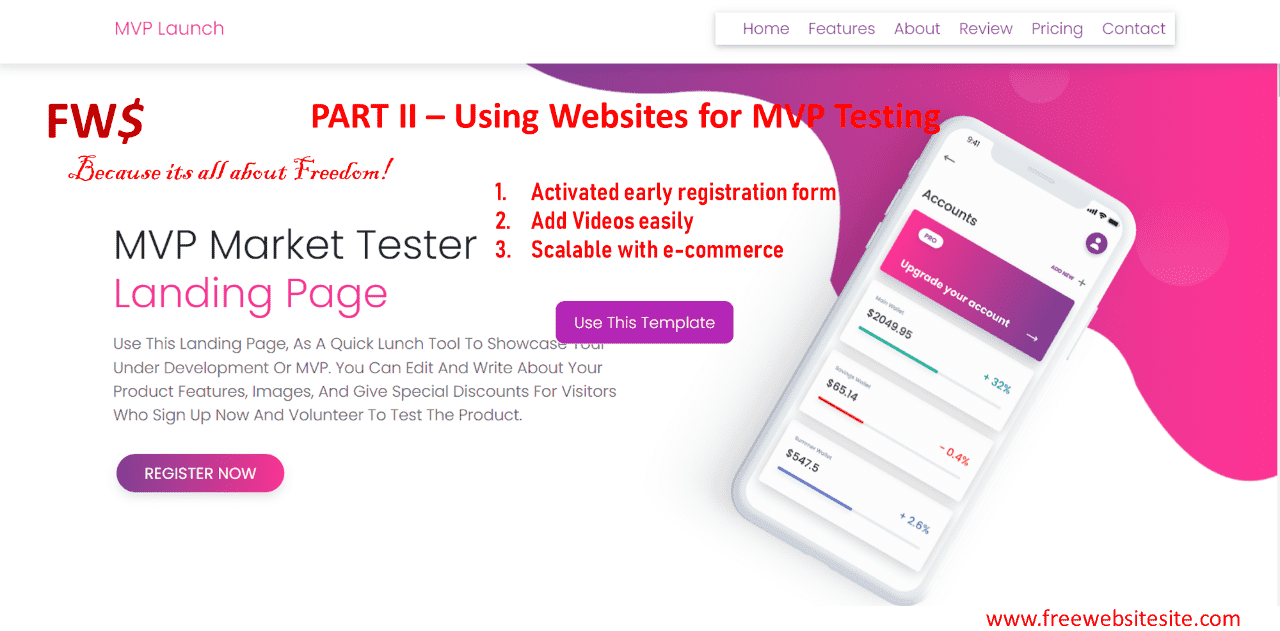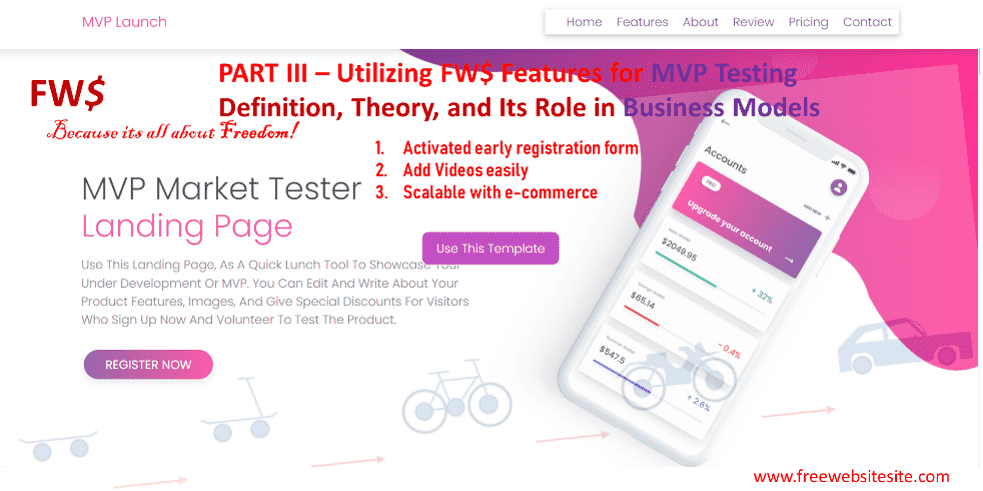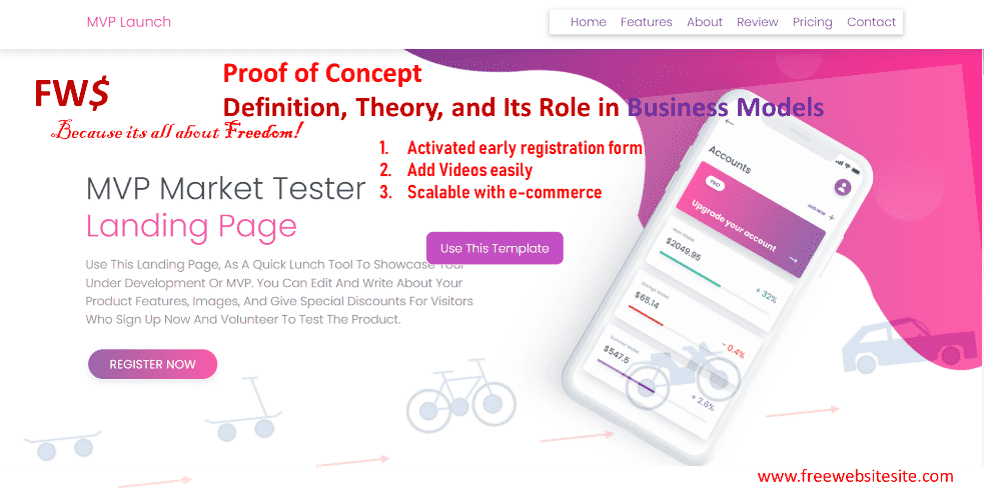Understanding Pilot Projects: A Practical Approach to Market Validation and Risk Mitigation
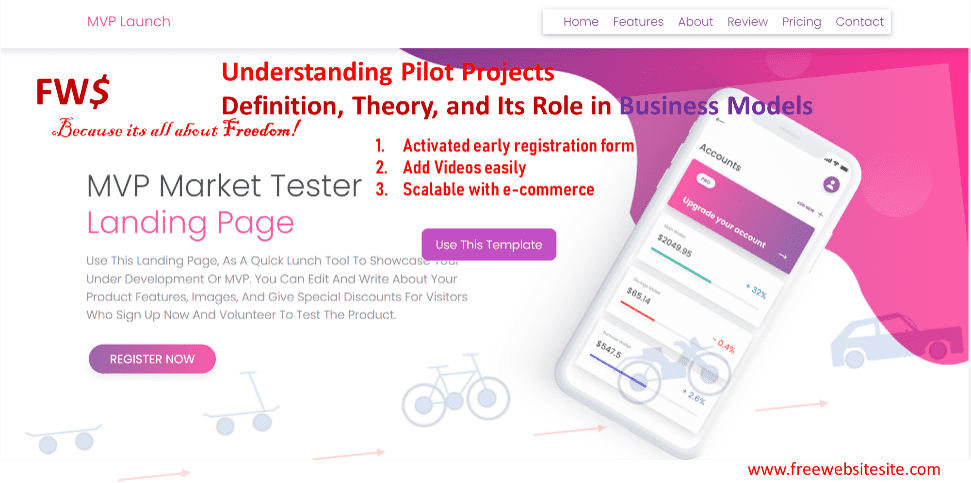
In the ever-evolving landscape of business, innovation is a crucial driver for growth. However, introducing new ideas, products, or services without validating their feasibility and market demand can lead to costly failures. One of the most effective strategies for mitigating risk and ensuring success is by running a Pilot Project. In this article, we'll explore the concept of pilot projects, their benefits, and how they differ from Proof of Concept (PoC) and Minimum Viable Product (MVP). We'll also explain why freewebsitesite.com is the perfect platform for launching your pilot project, complete with statistical data that reinforces the importance of this business strategy.
What is a Pilot Project?
A Pilot Project is a small-scale, preliminary study conducted to evaluate the feasibility, time, cost, and risks of a new idea, product, or service in a real-world environment. Unlike a Proof of Concept (PoC), which typically focuses on technical feasibility, a pilot project assesses whether the concept works operationally and whether there's market demand for it. This is a more comprehensive test that covers both the technical and market aspects of the product or service.
The goal of a pilot project is to determine whether the concept can be successfully scaled and implemented in a full-scale launch. Pilot projects allow businesses to gather feedback from real customers, make necessary adjustments, and fine-tune their offering before committing significant resources to a broader rollout.
Benefits of Pilot Projects
Pilot projects offer several key advantages, particularly in terms of minimizing risk, gathering valuable data, and ensuring market readiness.
1. Operational Testing
Pilot projects test the product or service in real-world conditions, allowing businesses to assess not only technical feasibility but also operational efficiency. This ensures that the product works smoothly in everyday scenarios and helps identify any logistical or operational challenges that may arise.
2. Market Validation
Unlike a PoC, which primarily focuses on technical feasibility, pilot projects are designed to test whether there is demand for the product in the market. By launching a pilot, businesses can gauge customer interest, measure satisfaction levels, and determine the likelihood of success in a full-scale launch.
3. Risk Reduction
Pilot projects provide valuable insights into potential risks be they technical, operational, or market-related. By identifying these risks early, businesses can make necessary adjustments before investing in a full-scale launch, thereby reducing the overall risk.
4. Cost Efficiency
Pilot projects require fewer resources than full-scale launches. By starting with a smaller, controlled rollout, businesses can gather critical data and feedback without the significant financial investment required for a full-scale project.
5. Data-Driven Decisions
The data gathered from pilot projects allows businesses to make informed, data-driven decisions about whether to proceed, pivot, or abandon the idea. This approach reduces the guesswork and increases the chances of success in a larger rollout.
How Pilot Projects Differ from PoC and MVP
Although Pilot Projects, Proof of Concept (PoC), and Minimum Viable Product (MVP) share the common goal of validating a business idea before full-scale development, they differ in scope, focus, and implementation. Understanding these differences is crucial for determining which approach is best suited to your business needs.
1. Pilot Project vs. Proof of Concept (PoC)
Scope: A PoC is primarily focused on validating the technical feasibility of an idea. It answers the question, Can this idea be built? A Pilot Project, on the other hand, is more comprehensive. It not only tests the technical aspects but also assesses market demand and operational efficiency. In other words, a PoC tests if something can work, while a pilot tests how it works in a real-world scenario.
Stage in Development: A PoC usually comes earlier in the development process and is a theoretical or small-scale technical model, whereas a Pilot Project is conducted after the PoC has proven the concept's technical feasibility. The pilot introduces the product to a limited audience in a real-world setting.
Audience: PoCs are often tested internally by developers or technical teams, while pilot projects are rolled out to real users or customers to gather feedback on both the product and its market fit.
2. Pilot Project vs. Minimum Viable Product (MVP)
Scope: An MVP is a version of the product that includes only the core features necessary to meet the needs of early adopters. The goal of an MVP is to test the product's market viability while keeping development costs low. A Pilot Project, on the other hand, is broader in scope and may involve a more complete version of the product. It tests not only the market viability but also operational challenges, customer satisfaction, and scalability.
Development Focus: An MVP is developed with a lean mindset, stripping the product down to its most essential features. A pilot project might test a fuller version of the product, including non-essential features, to ensure that it works smoothly in real-world conditions and is ready for a broader release.
Timeline: MVPs are typically used for early-stage startups looking to get to market quickly. Pilot projects, while still time-bound, usually occur at a later stage when the product is closer to completion, often after an MVP or PoC has already been tested.
In essence, a PoC validates technical feasibility, an MVP tests the core product offering, and a Pilot Project assesses whether the entire product can succeed in the market and be operationally scalable.
Statistical Truths About Pilot Projects
Numerous studies have shown that pilot projects increase the likelihood of business success by mitigating risks and validating market demand. Let's examine some statistics that reinforce the value of pilot projects:
According to research by Harvard Business Review, 80% of businesses that conduct pilot projects find them useful for identifying potential risks before a full-scale launch. Source: HBR
60% of businesses that run pilot projects successfully transition into full-scale operations, as opposed to only 40% for companies that skip the pilot stage. Source: McKinsey & Company
85% of startups that conduct pilot projects report increased investor confidence due to the operational and market validation gained from the pilot stage. Source: KPMG
These statistics illustrate that pilot projects significantly improve the chances of a successful product launch by allowing businesses to test both the product and the market environment in a controlled, low-risk setting.
Why Use freewebsitesite.com for Your Pilot Project Landing Page or Market Release?
When it comes to running a successful pilot project, having an online platform that is easy to use, cost-effective, and scalable is essential. freewebsitesite.com offers all of these features and more, making it the perfect platform for showcasing your pilot project and gathering market feedback.
1. Cost-Effective
Launching a pilot project often involves testing the waters with a limited audience. freewebsitesite.com provides a budget-friendly solution for creating professional-looking landing pages that help you present your product to a select group of users without the hefty costs associated with custom-built websites.
2. Easy Setup and Customization
One of the standout features of freewebsitesite.com is its intuitive interface. Even if you're not tech-savvy, you can create a landing page for your pilot project in minutes, complete with customizable templates and drag-and-drop design elements. This allows you to focus on your project without getting bogged down in the technical details.
3. User Feedback Integration
Gathering feedback is crucial during a pilot project. With freewebsitesite.com, you can easily integrate feedback forms, customer surveys, and analytics tools to collect valuable insights from your users. This data helps you refine your product and address any issues before a larger rollout.
4. SEO Optimization
Launching a pilot project landing page on freewebsitesite.com gives you the added benefit of built-in SEO optimization. This helps ensure that your landing page ranks well on search engines, increasing visibility and attracting more users to your pilot project.
5. Scalable Platform
As your pilot project progresses and you prepare for a full-scale launch, freewebsitesite.com allows you to easily scale your online presence. Whether you need to add more features, expand your landing page, or integrate e-commerce capabilities, the platform can grow with your business.
6. Real-Time Analytics
freewebsitesite.com offers real-time analytics that allow you to monitor user interactions, track conversions, and measure the overall performance of your pilot project. This data is critical for making data-driven decisions about the future of your product.
Conclusion
Running a Pilot Project is a crucial step in ensuring the success of new products or services. By testing the operational, technical, and market feasibility of your concept, you can minimize risk, save resources, and gather valuable feedback before committing to a full-scale launch. Additionally, pilot projects offer the opportunity to build investor confidence and validate market demand.
Using freewebsitesite.com as your platform for launching pilot project landing pages provides you with a cost-effective, user-friendly, and scalable solution. From gathering real-time feedback to optimizing for SEO, freewebsitesite.com helps you showcase your product and collect the data you need to make informed decisions.
Whether you're a startup or an established business, don't skip the pilot stage it could be the key to ensuring your product's success in the market.
Sources:
- Harvard Business Review
- McKinsey & Company
- KPMG
